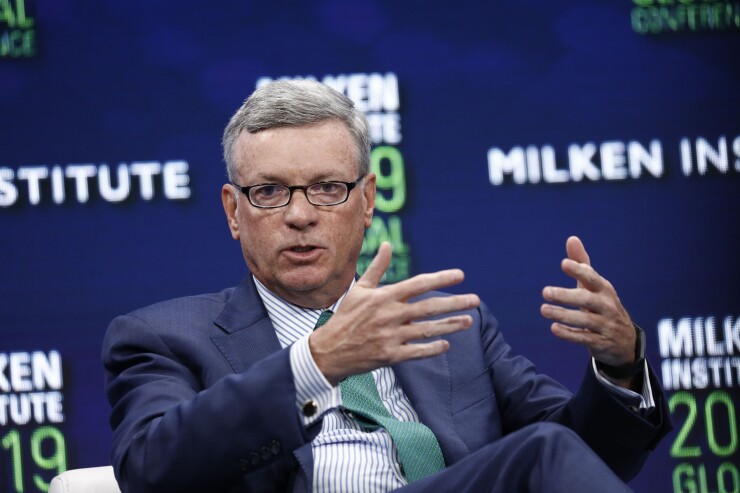While card payment fees are facing international heat, Visa is seeking ways to work with central banks to speed automation and help in the development of digital currencies.
"There's always been regulatory issues and discussions that take place around the world. I don't think there's been any material change over the last year," Alfred Kelly, Visa's CEO, said during Thursday's earnings call.
Kelly faced analyst queries on potential government regulation during the call. The U.K. Parliament earlier in January
Kelly on Thursday did not directly take a position on new regulation, but argued that the increase in digital payments during the pandemic helped bolster the economy, and said Visa hoped to work with governments to improve payment technology.
"I do think the pandemic has helped governments recognize the importance of digitization. At a time when people were locked down, they were able to order food and other items to be delivered to their homes because of digital payments," Kelly said, adding that Visa helped governments in areas such as expanding access and speed for coronavirus stimulus disbursements. "During [the past two years] payments have become more digital and governments realized they should become more digital."

Visa also sees an opportunity in the growth of central bank digital currencies. The card network can work with governments to
"Central bank digital currencies give us an opportunity to talk to central bankers, which are seeking our counsel in many cases," Kelly said. "It allows us to talk about other things that governments may be contemplating."
Kelly did not address pending interchange hikes that it and Mastercard are planning for later this spring. He also did not address Visa's
For the quarter that ended Dec. 31, Visa reported a profit of $3.96 billion and adjusted net income of $1.81 per share, up 27% from $1.42 the prior year and better than Zacks Investment Research estimates of $1.69 per share. The payment network reported revenue of $7.06 billion, also above analysts' estimates of $6.77 billion. Visa additionally reported total processed transactions of 47.6 billion for the most recent quarter, up 21% from the prior year.
Echoing Mastercard, Visa said the omicron variant's impact on transaction volume has been modest, noting a recovery is underway in countries where omicron has peaked, including South Africa and the U.K. The card brand expects travel spending to further recover as borders reopen. As such, the card network projects net revenue growth to reach the high teens for the next quarter and the next year. Travel, outside of intra-Europe, will reach 2019 levels by the end of the year, Visa reported.
Visa also positioned itself as an enabler of new payment options including cryptocurrency, buy now/pay later lending and account-to-account payments. Although innovations are often depicted as disruptive to card payments, they also provide an opportunity for Visa to connect consumers and merchants, according to Kelly.
"Open networks win over closed networks," Kelly said. "What ends up happening in any kind of closed situation, after initial excitement people run into a wall where it gets hard to scale."





